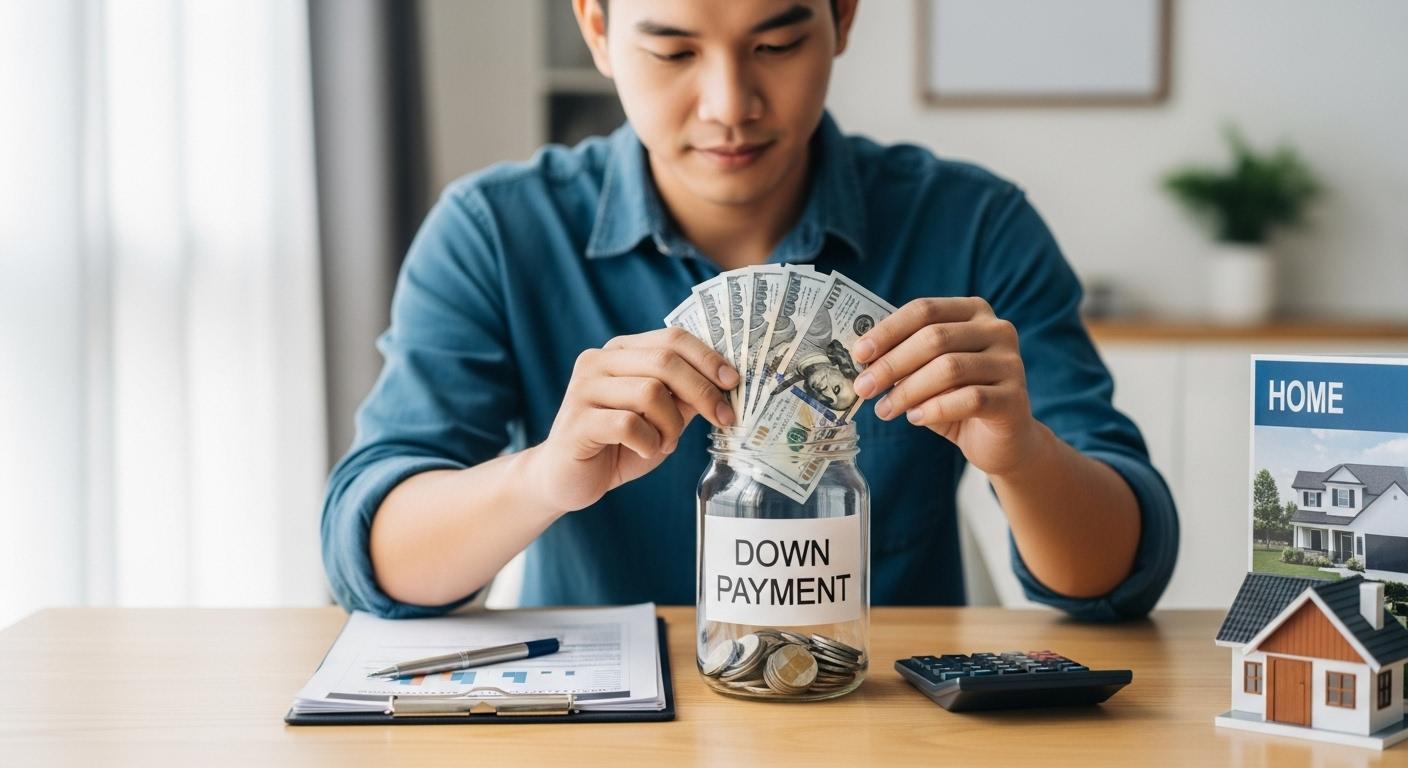It is possible to purchase a house in America if you have bad credit. However, it requires a certain kind of loan, a sound money plan, and being ready. A low credit score doesn't stop one from getting a mortgage as long as there is a credit through FHA loans, co-signers, and the like.
What Does "Bad Credit" Mean in the United States?
Bad credit is typically associated with a FICO score of less than 620. A low score can limit the range of traditional mortgage options, but it does not necessarily mean that you will not be able to buy a house. The trick is to know how lenders work. They look at your credit score as a risk factor; however, other factors, such as income, savings, debt-to-income ratio, and job stability, can still be very attractive.
Buying a house is similar to a construction estimation process, you are doing the budgeting, planning and forecasting the costs before the actual work starts. In the same way as experts use the best construction estimating services in the USA to get the right figures for the project, homebuyers cannot do without reliable financial estimates before taking their steps. Being accurate and prepared are the only things that matter.
Impact of Credit Scores on Mortgage Approval
A credit score is a tool that lenders use to determine whether or not you are a responsible borrower. The higher the score, the better loan conditions you will be granted. To better understand the situation, let’s see how your credit influences the mortgage you could get:
| Credit Score Range | Loan Type Likely to Qualify For | Typical Down Payment |
| 760+ | Conventional Loan | 3–5% |
| 700–759 | Conventional Loan | 5–10% |
| 620–699 | FHA or Conventional (higher rate) | 5–15% |
| 580–619 | FHA Loan | 3.5–10% |
| 500–579 | FHA (with restrictions) | 10% |
| Below 500 | Unlikely to qualify | — |
This chart illustrates the reason that by enhancing your credit, just a little, can lead to saving thousands of dollars in interest over the duration of your loan.
Step-By-Step: How to Buy a House with Bad Credit
1. Check Your Credit Score and Reports
The very first thing to do is to get knowledge of your credit reports from the three major bureaus, Experian, Equifax, and TransUnion. It is quite common for there to be mistakes - and in the case you find and dispute a single wrongly reported late payment, your score can increase rapidly.
Consider this your personal construction takeoff; you are measuring every financial "material" you have before the project starts.
2. Work on Your Credit Score
Concentrate on activities that involve paying down credit card debt, making all payments on time, and not incurring any new debt. Even 6 months of spotless credit can potentially increase your score by 40-80 points.
3. Save for a Larger Down Payment

A solid down payment (10-20%) can compensate for a bad credit score. This is a great comfort to lenders that you are financially stable. This is, by far, the most powerful way to gain approval in spite of a low FICO score.
4. Explore Government-Backed Loans
Low-credit borrowers can rely on three main government-backed loans:
- FHA Loans: They accept credit scores as low as 500 with a down payment of 10%.
- VA Loans: For veterans, usually, there is no down payment required, or a minimum credit score
- USDA Loans: Made for rural homebuyers with moderate incomes.
Each program is built to support the typical American, not only those with flawless credit, to become homeowners.
Comparing Loan Types and Requirements
| Loan Type | Minimum Credit Score | Down Payment | Key Benefit |
| FHA Loan | 500–580 | 3.5–10% | Easier approval, flexible credit |
| VA Loan | None officially | 0% | No mortgage insurance |
| USDA Loan | 640 | 0% | Rural buyers, low-income support |
| Conventional Loan | 620 | 3–20% | Lower long-term costs |
Co-Signers and Co-Borrowers: A Practical Option
In case your credit score is not good but you are earning well, you may think of a co-signer. The creditworthiness of their side will help you get better terms. But still, they will be responsible for the payments if you default. The use of this method is safest when trust is maximum and both of you are on the same page regarding the risks.
The Function of Debt-to-Income Ratio (DTI)
Creditors additionally consider your DTI ratio, which is the fraction of your monthly income that is used to pay debts. If your DTI is less than 43%, you can still get a loan with bad credit.
| Income | Monthly Debt | DTI % |
| $6,000 | $2,400 | 40% |
| $5,000 | $2,500 | 50% |
If you want to make your DTI better, then you first need to concentrate on paying off smaller debts, and also make sure that you don't have big purchases before you apply.
Why Preapproval Is Important

Preapproval is a powerful weapon in the hands of the buyer. It allows the seller to see that you are a serious buyer, and it helps both parties to have a realistic idea of what can be expected. It is very similar to getting an estimation of what your construction costs will be when you are planning to build a new house - you will know your exact financial blueprint even before you start looking.
How Interest Rates Will Be
People with bad credit should expect that their interest rate will be a bit higher than usual - in most cases, it is from 0.5% to 2% higher than the rate for prime borrowers. For instance:
| Loan Amount | Good Credit (6.5%) | Bad Credit (8.0%) | Difference Over 30 Years |
| $300,000 | $682,000 | $793,000 | $111,000 more |
Once your credit situation gets better, you are allowed to get a new loan by refinancing at a lower rate.
First-Time Homebuyer Assistance in the U.S.
Almost all the states in the U.S. have buyer assistance programs that support poor-credit buyers or those who have no money for down payments. Some of the examples are:
- CalHFA (California): Provides low-interest loans to first-time buyers.
- Texas Homebuyer Program: Offers assistance with down payment and closing costs.
- New York SONYMA: Provides very low-interest rates for low- and moderate-income buyers.
Usually, these programs are compatible with Lowe or USDA loans.
Ways to Avoid Scams and Predatory Lenders

You should be very careful and not trust “no credit check” lenders and rent-to-own offers that look extremely attractive without verification. Lender confirmation that it is HUD-approved and very clear about the fees should never be omitted. Predatory loans may end in a loss of homes and a financial situation that can ruin you for years.
Build a Stronger Financial Foundation
Ways to build better credit habits before or after purchasing a home are as follows:
- Make the payments related to your credit on time without fail.
- Try to utilize your credit card no more than 30%.
- Refrain from excessive credit inquiries.
- Create a small emergency fund (3–6 months of expenses).
By making small, consistent steps, it has a compounding effect on your financial stability.
Using Construction Estimation Mindset for Homebuying
Likewise, a contractor uses construction takeoff tools to estimate the quantity of material needed and the cost; you ought to apply equal thoroughness in handling your finances. Scrutinize every dollar of your income, be ready for hidden costs (insurance, property taxes, house maintenance), and don’t forget to reserve some money for unforeseen changes.
Learning from the top construction estimating services in USA can provide valuable insights. These experts understand that success stems from precision, not chance. The same principle applies to homebuying: by creating detailed “financial blueprints,” you can avoid costly surprises down the road.
Planning for the Future: Refinancing and Credit Growth
Once your home is safe and you have built a positive credit history over a few years, you may refinance to lower your interest rate. Most individuals (among a majority) who initially purchased homes by means of FHA loans decide to refinance later on into conventional mortgages after they attain good credit scores.
When to Call on a Professional
If the whole setup confuses you and makes you feel helpless, you could think about speaking to one or more of the following:
- Mortgage brokers - they have access to different lenders
- HUD-certified housing counselors (most provide a free session)
- Credit repair offices (in case your credit has been problematic for a long time)
They can provide assistance, safety, and effectiveness while you are involved in credit rebuilding and loan application procedures.
Final Thoughts
Owning a home when your credit is bad is not a matter of luck; rather, it is a question of readiness, planning, and never quitting. In the same way as builders use construction estimation for calculating the project costs, you also have to do the estimation of your financial resources before committing to a loan.
If you are diligently working on improving your credit score or saving money for a down payment, or just checking out the possibilities with FHA and VA, you should always keep in mind that imperfection of credit is not a barrier to homeownership, as thousands of people in America do it every year. Your dream home can still be a reality, taking into account proper planning and a positive attitude.
FAQs
Q1: Can I buy a house with a 500 credit score?
Yes, it is possible. FHA loans allow buyers with scores as low as 500, though you may need a larger down payment.
Q2: How much down payment do I need with bad credit?
Most lenders will require 10–20% of the home price if your credit is low. Some government-backed loans may allow less, but higher down payments improve your approval chances.
Q3: Does having a co-signer help?
Absolutely. A co-signer with good credit can make lenders more confident and may help you secure a lower interest rate.
Q4: Are FHA loans better than conventional loans for bad credit?
Yes. FHA loans are more flexible and designed for buyers with lower credit scores, making them easier to qualify for than conventional mortgages.
Q5: How soon can I refinance after buying with bad credit?
Typically, you can refinance after 12–24 months, once your credit score improves and you’ve built some equity in your home.

